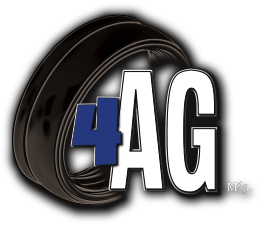What Are the Effective Ways of Setting Your Planter?
Navigating the complexities of planting can be likened to conducting a precise scientific experiment. Each step, from soil preparation to seed placement, is crucial in determining the overall success of your crop. The precision with which you execute these steps can make the difference between an average yield and an outstanding harvest. At the core of this process lies a critical element often overlooked yet essential for optimal growth: the effective use of closing wheels for planters. As we turn our focus to setting your planter for success, the significance of these tools becomes increasingly clear, marking the difference between mere planting and strategic cultivation.
Pinpointing Planting Challenges
A successful planting season begins with understanding the challenges at hand. Various factors, such as soil type, weather conditions, and seed variety, directly impact your planting strategy. Identifying these challenges early on helps in tailoring your approach to meet the specific needs of your crop. Efficient closing wheels are important in this regard.
Achieving Tool Balance
The balance of your planting tools, particularly the toolbar, is essential for uniform seed depth and distribution. An unbalanced toolbar can lead to inconsistent planting, which in turn affects crop growth and yield. Regular checks and adjustments ensure your tools are perfectly aligned for optimal performance.
Optimal Down Pressure Settings
Down pressure on your planter plays a critical role in seed placement. Too much pressure can compact the soil, hindering root growth, while too little pressure may leave seeds too close to the surface, affecting germination. Setting the right down pressure is a delicate balance that can significantly impact your crop's success.
Precision in Depth Adjustment
Depth adjustment is more than just a setting; it's about understanding the needs of your seeds. Different crops require different planting depths for optimal growth. Precise depth adjustment ensures that each seed is placed at the ideal depth, promoting uniform germination and growth.
Residue Management
Clearing residue without disturbing the soil is crucial for maintaining soil structure and moisture levels. Effective residue management helps in creating a conducive environment for seed germination while preserving the soil's health.
Seed Placement with Seed Firmers and Closing Wheels for Planters
Seed farmers gently press seeds into the soil, ensuring good seed-to-soil contact, while closing wheels for planters play a vital role in covering the seeds with just the right amount of soil. This combination is pivotal in achieving uniform seed placement and depth, leading to consistent germination and growth.
The Speed Factor
The speed of your planter can significantly affect seed placement and depth. Faster speeds can lead to seed bouncing and uneven distribution. Maintaining an optimal speed is crucial for accurate and effective planting.
Soil Check-Up
Regularly checking soil conditions provides insights into the soil's moisture content, texture, and structure. This information is vital for making informed adjustments to your planting strategy, ensuring that it aligns with the current state of your soil.
Enhancing Planter Performance with 4AG Manufacturing
At 4AG Manufacturing, we understand that setting your planter for success involves a comprehensive grasp of each component's role in the planting process. Our focus on closing wheels for planters highlights their pivotal function in providing seeds with the ideal start. The tire of the closing wheel, a key product of 4AG Manufacturing, is designed to ensure optimal soil contact and pressure, which is crucial for effective seed placement. By emphasizing these critical areas and utilizing our specially crafted tires for closing wheels for planters, we're committed to helping you pave the way for a fruitful and prosperous harvest.

